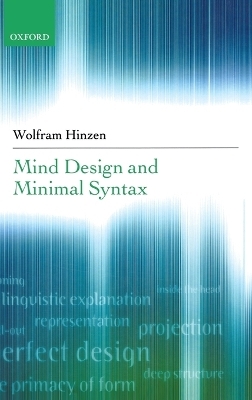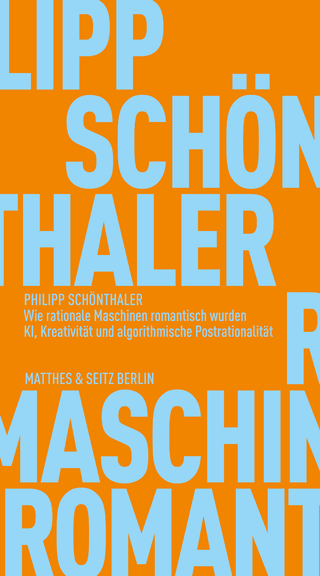
Mind Design and Minimal Syntax
Seiten
2006
Oxford University Press (Verlag)
978-0-19-927441-3 (ISBN)
Oxford University Press (Verlag)
978-0-19-927441-3 (ISBN)
Introduces generative grammar and asks what it tells us about the human mind. This work unites modern generative linguistics with the philosophies of mind and language. It introduces Chomsky's program of a 'minimalist' syntax as a novel explanatory vision of the human mind. It is aimed at scholars in linguistics, philosophy, and cognitive science.
This book introduces generative grammar as an area of study and asks what it tells us about the human mind. Wolfram Hinzen lays the foundation for the unification of modern generative linguistics with the philosophies of mind and language. He introduces Chomsky's program of a 'minimalist' syntax as a novel explanatory vision of the human mind. He explains how the Minimalist Program originated in work in cognitive science, biology, linguistics, and philosophy, and examines its implications for work in these fields. He considers the way the human mind is designed when seen as an arrangement of structural patterns in nature, and argues that its design is the product not so much of adaptive evolutionary history as of principles and processes that are ahistorical and internalist in character. Linguistic meaning, he suggests, arises in the mind as a consequence of structures emerging on formal rather than functional grounds. From this he substantiates an unexpected and deeply unfashionable notion of human nature. _ Clearly written in nontechnical language and assuming a limited knowledge of the fields it examines and links, Minimal Mind Design will appeal to a wide range of scholars in linguistics, philosophy, and cognitive science. It also provides an exceptionally clear insight into the nature and aims of Chomsky's Minimalist Program.
This book introduces generative grammar as an area of study and asks what it tells us about the human mind. Wolfram Hinzen lays the foundation for the unification of modern generative linguistics with the philosophies of mind and language. He introduces Chomsky's program of a 'minimalist' syntax as a novel explanatory vision of the human mind. He explains how the Minimalist Program originated in work in cognitive science, biology, linguistics, and philosophy, and examines its implications for work in these fields. He considers the way the human mind is designed when seen as an arrangement of structural patterns in nature, and argues that its design is the product not so much of adaptive evolutionary history as of principles and processes that are ahistorical and internalist in character. Linguistic meaning, he suggests, arises in the mind as a consequence of structures emerging on formal rather than functional grounds. From this he substantiates an unexpected and deeply unfashionable notion of human nature. _ Clearly written in nontechnical language and assuming a limited knowledge of the fields it examines and links, Minimal Mind Design will appeal to a wide range of scholars in linguistics, philosophy, and cognitive science. It also provides an exceptionally clear insight into the nature and aims of Chomsky's Minimalist Program.
Wolfram Hinzen is a senior lecturer at the Institute for Logic, Language, and Computation and a member of the Cognitive Science Center at the University of Amsterdam. He was previously at the Institute for Philosophy, University of Regensburg. He is the co-editor with Hans Rott of Belief and Meaning: Essays at the Interface (Berlin: Hänsel-Hohenhausen, 2002) and the author of The Semantic Foundations of Anti-Realism (Berlin: Logos 1998). His next book An Essay on Naming and Truth will be published by OUP in October 2006.
PREFACE; ACKNOWLEDGEMENTS; PART I: NATURALLY HUMAN; PART II: DEDUCING VARIATION; PART III: RATIONAL MIND; CONCLUSIONS; REFERENCES
| Erscheint lt. Verlag | 1.5.2006 |
|---|---|
| Verlagsort | Oxford |
| Sprache | englisch |
| Maße | 162 x 242 mm |
| Gewicht | 623 g |
| Themenwelt | Geisteswissenschaften ► Philosophie ► Sprachphilosophie |
| Geisteswissenschaften ► Sprach- / Literaturwissenschaft ► Sprachwissenschaft | |
| ISBN-10 | 0-19-927441-X / 019927441X |
| ISBN-13 | 978-0-19-927441-3 / 9780199274413 |
| Zustand | Neuware |
| Haben Sie eine Frage zum Produkt? |
Mehr entdecken
aus dem Bereich
aus dem Bereich
Macht und Legitimität politischer Sprache im Prozess der europäischen …
Buch | Softcover (2023)
Nomos (Verlag)
74,00 €
KI, Kreativität und algorithmische Postrationalität
Buch | Softcover (2024)
Matthes & Seitz Berlin (Verlag)
16,00 €
Wie die Menschheit zu ihrer größten Erfindung kam
Buch | Softcover (2022)
C.H.Beck (Verlag)
18,00 €


